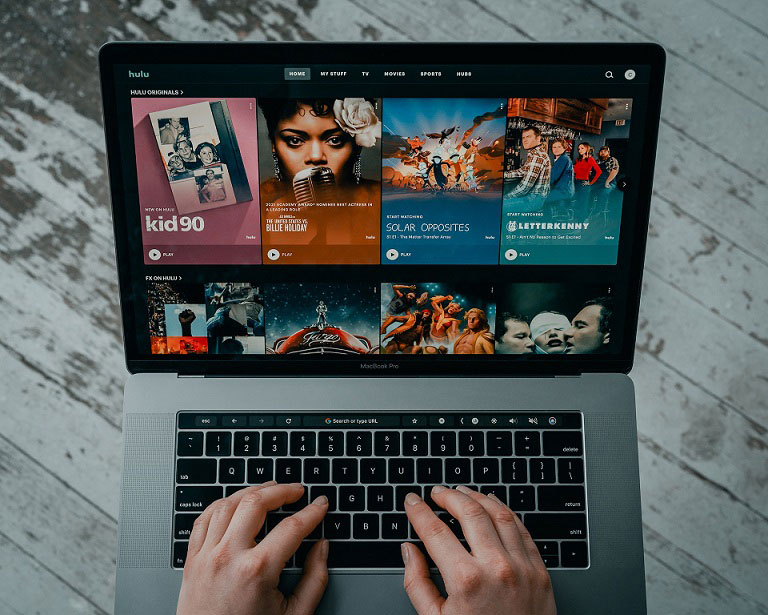Entertainment through the Internet
“I used to have a hi-fi, a television set, a VCR, and a video game console,” says one Internet Society member. “Now, my phone does all that and more.”
From the very beginning of the Internet, people didn’t just use the network of networks to exchange information. They also used it for entertainment, sharing stories, and playing games.

During the “golden age” of the video arcade, games like Pac-Man and Space Invaders swallowed up the allowances of teenagers around the world.
The home computer and video console revolution took these games out of the arcade and into the bedroom. But even multiplayer mode couldn’t capture the communal experience of the arcade.
The development of online gaming changed this. Now, friends and family could compete against each other wherever they were in the world. You could play against complete strangers and build new networks of like-minded gamers.
Starting with early text-based multiplayer online games–like Multi User Dungeon (MUD)–online gaming became more sophisticated and immersive as Internet speeds increased.
Now, entire worlds exist online, from Minecraft to PUBG and Fortnite. Some of these online worlds have even crossed over into the physical world. In 2016, the augmented reality game Pokémon Go saw people across the globe trying to catch and evolve Pokémon creatures using their mobile devices.
In recent years, live-streaming of video games has become increasingly popular on sites like YouTube and Twitch, with the rise of esports where teams of highly skilled gamers compete against one another.

Gaming has now become a true global spectator sport, with thousands of people attending esports events and watching online. In 2023, Singapore hosted the first Olympic Esports Week and there are calls for esports to be included in the main Games.
Online streaming has also transformed the way we consume and discover other forms of entertainment.
Traditional radio has always been controlled by cultural gatekeepers who decide which tracks get playlisted and which don’t. Music stores have physical limits to what they can stock, space is restricted. Also, music was expensive, and access was limited. The Internet changed all this.
Music downloads and streaming have come a long way since the somewhat shady days of file sharing sites. Despite early resistance, the music industry was unable to ignore the digital revolution and has come to embrace it. Streaming is now the most lucrative recorded music format around the world.
I used to sit in my bedroom with my finger hovering over the record button on my cassette player, waiting for my favorite songs to be played on the radio. I would raid my sister’s record collection to find out about cool bands to impress my friends. But now, nearly every song ever recorded is instantly available at my fingertips. The Internet has opened up a whole new world of music for me.”
Streaming broke the traditional format of the “album” into individual tracks. Instead of compiling mixtapes to share with friends, now you can create playlists and share them with the world. Algorithms recommend new tracks based on your listening or viewing habits, allowing people to discover new artists from all over the world and take deep dives into genres they might never have heard before.
The dominance of English as the language of pop music is waning. Of the 35 non-English language songs to reach the top 10 in the Billboard charts, six were in 2023 alone.
Gangnam Style by Psy became the first video to reach a billion views on YouTube and introduced many people around the world to Korean music for the first time. But it was devoted fan bases like the BTS A.R.M.Y. who used social media to turn K-pop into a global phenomenon.
The Internet has also introduced people to films and TV shows from all over the world, opening up new markets. From Squid Game and Money Heist to All of Us Are Dead, more and more people are overcoming the one-inch-tall barrier of subtitles to enjoy content from across the globe.
With the window between a movie’s theatrical release and its appearance on streaming services, some people are choosing to wait to watch the latest blockbuster from the comfort of their own homes rather than going to the movie theater.
But the Internet hasn’t stopped people from going to the cinema completely. In some cases, it’s helped boost ticket sales. Online excitement about the same-day release of Barbie and Oppenheimer led to the global Barbenheimer phenomenon. People online made plans to see both films, but in which order? Barbie first or Oppenheimer first? And what to wear, Barbie pink or Oppenheimer black? The phenomenon resulted in record-breaking global box office sales for both movies.
Video streaming services have also impacted how we discover new and old music. When Stranger Things featured the Kate Bush song Running Up That Hill in one episode, the moment went viral with clips being shared on YouTube and TikTok.
Stranger Things viewers–many of whom had never heard the song before–began playing the song. Around the world, the song was propelled into the charts 37 years after it was originally released.
“I couldn’t believe it when I heard my 13-year-old son playing Kate Bush in his bedroom,” the Internet Society member said. “That was one of the records I borrowed from my sister all those years ago.”
More than ever, we are seeing a convergence between different types of entertainment–a blurring not just between genres and cultures but a blurring across time–producing new art forms that could only exist as a result of the Internet.
Read how the Internet has affected other areas of our lives for the better.
Read how the Internet has affected other areas of our lives for the better.
Help protect the Internet from fragmentation.
Help protect the Internet from fragmentation.
Image copyrights:
© Stem List on Unsplash, © Tech Daily on Unsplash, © Tumisu on Pixabay

